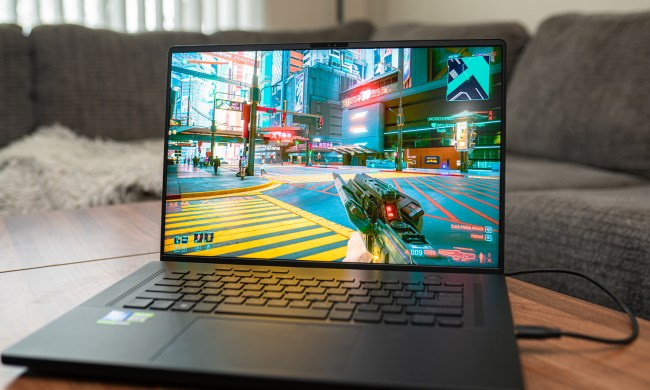I was skeptical about the idea of gaming on XR glasses, to say the least. I had questions swirling in my head about how I would use them, why I would use them, and cynical answers to both.
But all those questions faded into the background when I got a chance to actually experience it myself. I had a few days to play with a prototype version of the Viture One XR glasses, a project funded on Kickstarter — and as outlandish as the concept seems, it does work.
This isn’t the future of gaming for everyone, but the bells of the early days of VR were ringing in my head with the Viture One XR glasses. There’s a lot of work to be done on the prototype I tried, but despite all my assumptions, they could be the first step in an exciting new category for gaming.
A massive screen, anywhere you want
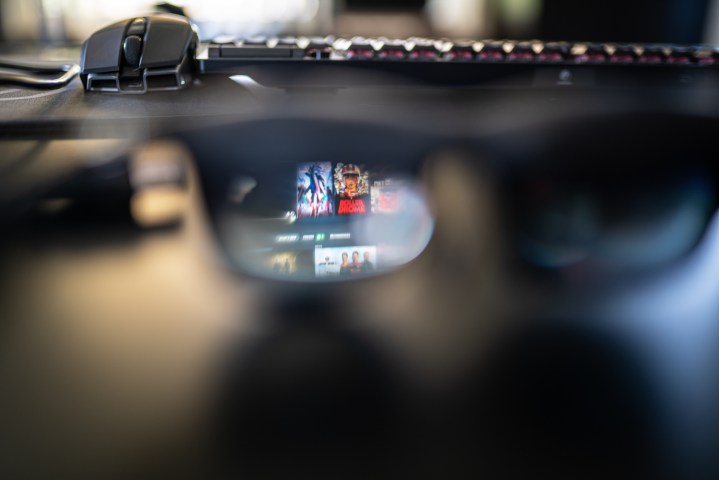
The Viture Ones give you the equivalent of a 120-inch screen, and although it doesn’t have the specs of one of the best VR headsets, it doesn’t need to. You’re getting a pixel density of 55, full signal at 1080p running at 60 fps, and a peak brightness of 1,800 nits, according to Viture. Now, I wasn’t able to strap a luminance meter inside the frames to verify 1,800 nits, but the screen was bright enough to combat even direct sunlight pouring through my living room windows.
There’s a little blur around the edge, but the screen looks great. It’s sharp and super responsive, and I constantly drifted off into a game or video every time I put on the glasses. Sure, you can see the surrounding room and it’s evident you’re not looking at a physical screen, but I never fought against getting engrossed in whatever I was doing. The Viture Ones pulled me in, which is shocking considering I normally wear glasses with a pretty heavy prescription.
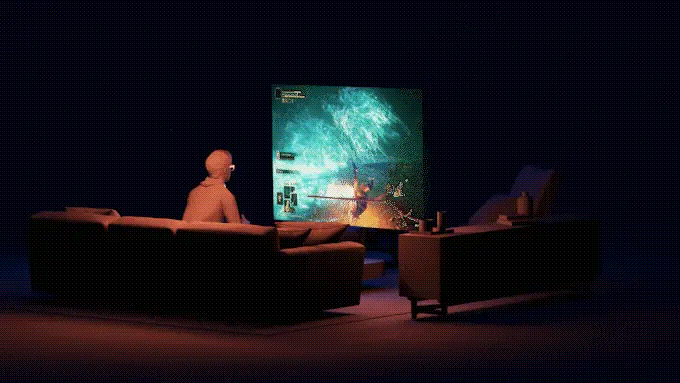
Devil May Cry 5 is what tipped me off. I played it on my Steam Deck, connected directly to the glasses through a USB-C cable, and it felt like playing the game on a normal 60Hz display. Devil May Cry 5 is extremely fast, and the Viture Ones held up exceptionally. I also watched a few YouTube videos and some Netflix on my couch, allowing me to lay down or rest my head while always having my media in the center of my field of view.

Having a screen anywhere is a huge plus. I can’t tell you how many times I’ve had to lay my head down awkwardly while playing a game or watching a movie when I want to rest and still see the screen, and it’s generally so uncomfortable that I just don’t do it. The Viture Ones get past that issue unlike any device you can buy right now, clocking in at only 78 grams so they never feel heavy.
The experience at home is great, but I’d really like to see the Viture Ones in action on a plane. Sunglasses on a plane may look silly, but I can’t stand looking down at my phone to watch a movie or my Steam Deck to play a game on a flight. These glasses seem like a huge win if you travel a lot.
The Viture Ones may be a glimpse into the future of gaming, at least for enthusiasts like myself that don’t mind strapping crazy tech to their faces. It’s a glimpse into the future, but we haven’t arrived yet.
Growing pains
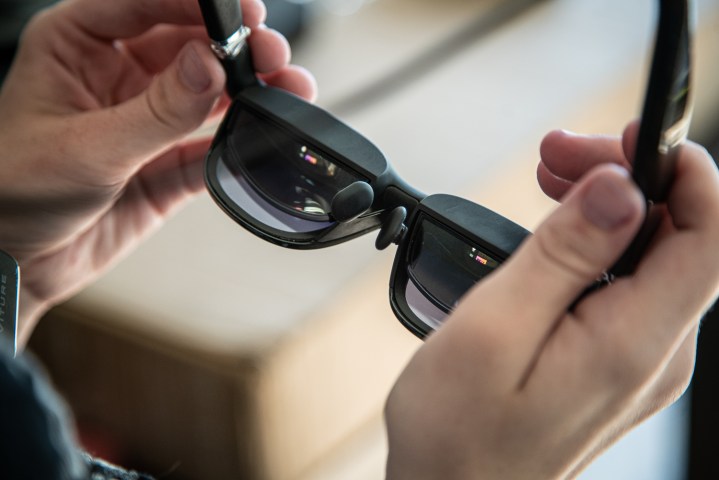
Any early prototypes come with a laundry list of issues, and Viture sent over a list of problems it’s aware of and working on for glasses that will ship out. I’m focused more on the hurdles that come up when designing a unique product, and I hope to see Viture address these issues either before launch in a version two.
Above all else, size is an issue. You’re given three nose pads in different sizes, but none of them fit my (admittedly large) nose. Comfort isn’t the issue here, either. If the glasses aren’t positioned on your face in the right way, you can’t see the full screen. I’m well aware of how awkward the glasses look on my face, but that was the only way I could set them and still see the screen.
There’s a reason that regular glasses have so many points of adjustment, and it’s hard to have that flexibility with how much tech is inside the Viture Ones. The ergonomics definitely need more tuning and more flexibility for larger heads.
The glasses themselves don’t have much computing power in them. If you want to access the operating system, you’ll need to connect the glasses to the neckband. The band is super comfortable and light, and all of your controls are easy to access. Within a couple of hours, I knew where everything was without a second thought.

The actual computing power is inside the neckband, and it’s actively cooled. The neckband warms up, and you can hear a fan inside trying to keep everything cool with minimal ventilation. It’s not uncomfortable, but with the lackluster built-in speakers, it feels like the fan noise and the speakers are fighting against each other.
I didn’t get to try out the optional mobile dock, which is the third part of the Viture Ones. This dock is exclusively for the Switch and it connects directly to the console. It probably works as well as the Steam Deck, which is great, and Viture says it can even upscale from 720p at 30 fps to 1080p. The company says 1080p at 60 fps, but we’re talking about the Nintendo Switch here.
Racing toward the finish line
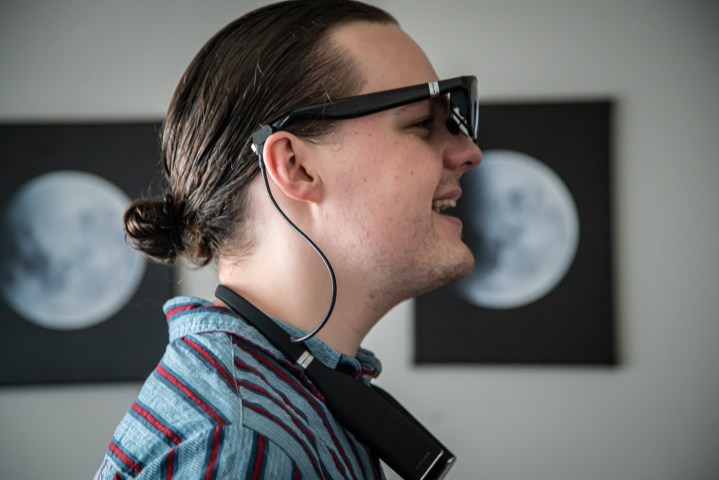
The Viture Ones are the first step in what could become a popular category over the next few years, especially as we see glasses like the Lenovo Glasses T1 start to pop up.
There are some usability hurdles to overcome, but Viture has clearly done a lot to get its first version right out of the gate. The glasses work, and that’s about as much as I can ask for right now.




